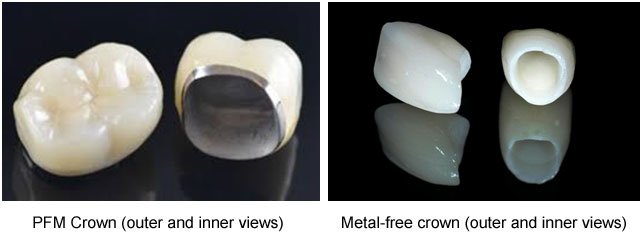There are always a plethora of questions running in the mind when you hear about the term ‘root canal treatment’. We, at Indiadens – the best dental clinic in south Delhi for specialised dental treatment – have tried our best to explain the common queries that you may have regarding the procedure, symptoms, and care required after treatment.
How do I know if I need an RCT?
You may not feel any pain during the early stages of infection.
In some cases, your tooth may darken in colour, which could mean that the blood supply to the tooth is dying.
It is important to know that you may not have any symptoms in the early stages of infection, and every tooth will respond differently when it comes to tooth decay.
Root canals are needed in a tooth with a deep cavity, or secondary infection beneath a pre-existing filling, or in a tooth cracked from injury or genetics. There are a few symptoms that mean you might need a root canal:

- Lingering sensitivity to hot and/or cold food and sweets, even after the sensation has been removed
- Throbbing pain while chewing or biting
- Pain that worsens when you lie down
- Tooth pain that radiates to the head and ears
- Pimples on the gums/swelling around the tooth
- A chipped or cracked tooth
- Deep decay or darkening of the gums
Does root canal treatment (RCT) hurt?
A root canal treatment will be performed after administering local anesthesia which makes the tooth numb. Make sure you eat a light meal before you visit Indiadens for your treatment. You will be advised against chewing and biting until the numbness wears off.
How many sittings does a root canal treatment take?
The use of modern tools and latest technology at Indiadens, along with the expertise of the doctors has made it possible to complete a root canal treatment in one visit. This is known as single sitting RCT. However, in a few situations, if there is an active infection in the tooth and it is not feasible to complete the treatment in one sitting, then it is completed in 2 or 3 sittings depending on the tooth’s condition.
Can I get back to my normal routine after getting my root canal treatment?
Although you will most likely be numb for approximately 30-90 minutes following the procedure, most patients are able to return to school or work directly following a root canal treatment. However, it is advised against eating for one to two hours until the numbness has completely gone to avoid biting your lip/tongue.
Isn’t it a better option to get the infected or painful tooth extracted instead?
There is nothing like your natural tooth! If you get your tooth extracted, you must get it replaced by either a fixed tooth in the form of an implant or a bridge to restore chewing function and to avoid the adjacent or opposing teeth from shifting into that space. These procedures tend to cost a lot more than endodontic treatment and appropriate restoration.
However, an implant is the next best thing to a natural tooth and if need be, is the top replacement option these days. You can read more about dental implant here.
Indiadens is one of the most renowned dental centres across Delhi-NCR for dental implant surgery. Dr. Ujjwal Gulati, one of the best dentists in Delhi NCR, leads the team of dental surgeons and is regarded as the most sought-after oral and maxillofacial surgeon for simple and complex implant surgeries in south Delhi.
How do I take care of my root canal treated tooth?
It is essential that patients take adequate care of their teeth following a root canal treatment to prevent further damage to the tooth, gums or surrounding teeth.
After an RCT at Indiadens, we recommend patients to:
- Brush their teeth twice a day with a fluoride toothpaste
- Floss teeth daily (especially around the treated tooth and crown region)
- Schedule regular dental appointments to check dental health

Patients are educated about certain signs post treatment, that may indicate that intervention is required. This helps to ensure that any complications are picked up and treated early, before they cause significant damage to the teeth.
Why do we need to put a cap over the root canal treated tooth?
All the teeth which undergo root canal treatment do not require caps/crowns. The teeth which have lost significant tooth structure due to caries or fracture and have become weak to an extent that they are more likely to break or fracture with application of chewing forces, are given a crown or cap to reinforce their strength and hence prolong their functional life.
What are the types of caps or crowns which are put over root canal treated teeth?
Crowns/Caps are of following types:
- PFM (Porcelain Fused to Metal) – It is a type of crown with porcelain layered on top of the supporting structure of metal.
- Zirconia ( Metal-free)

What is the cost of a root canal treatment at Indiadens?
The cost of RCT varies with the complexity of the procedure and the technological adjuncts used in the procedure. A root canal treatment under sedation assisted with microscopic tools for enhanced vision and dental lasers for disinfection is charged more than a standard RCT. Basic RCT procedure starts from Rs.4500/- at Indiadens.












